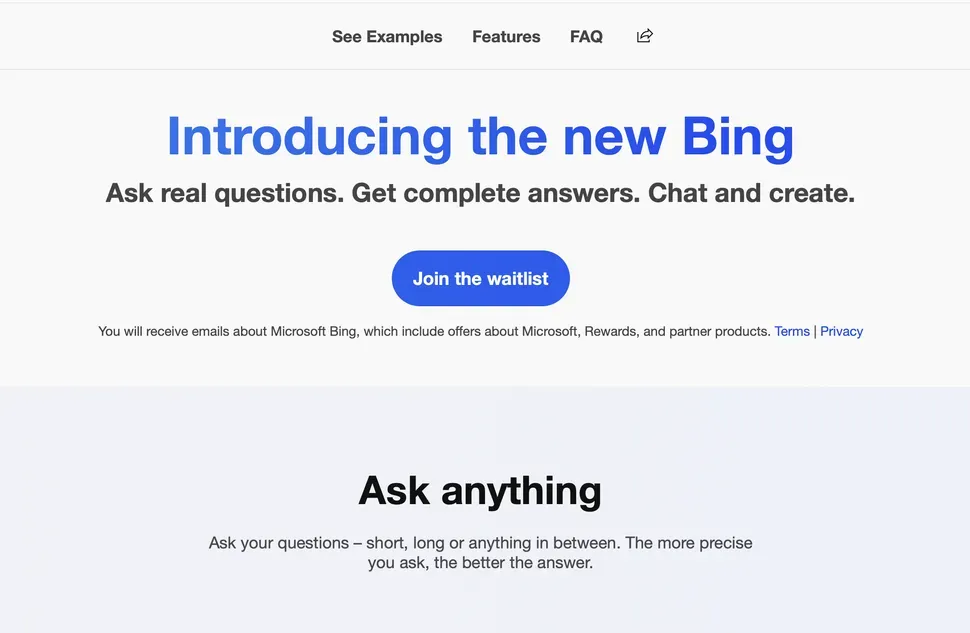The ChatGPT Search feature from OpenAI has recently transitioned from being a privilege for paid subscribers to an accessible tool for all logged-in users. This exciting development positions ChatGPT as a formidable player in the landscape of AI search engines, challenging the likes of Google. Users can now leverage this feature to swiftly locate answers to their questions and receive direct links to relevant sources, all integrated seamlessly within the ChatGPT interface. With its ability to conduct automatic web searches for the latest information, and an option for manual searching, this innovative tool enhances the user experience significantly. As more individuals gain free access to ChatGPT, it is poised to reshape how people approach online queries, highlighting the competitive edge of ChatGPT vs Google in the evolving digital landscape.
The newly introduced search functionality in ChatGPT, often regarded as an AI-driven search assistant, has opened up a plethora of opportunities for users seeking information online. This feature, which allows for immediate access to web searches, creates an alternative to traditional search engines, positioning ChatGPT as a noteworthy competitor in the realm of digital information retrieval. By streamlining the process of finding answers and providing direct links to sources, the ChatGPT search tool fosters a user-friendly environment reminiscent of established platforms. Moreover, the recent enhancements, including the Deep Research feature, indicate a commitment from OpenAI to innovate and improve their services continually. With these advancements, ChatGPT is not only redefining user interactions but also challenging the dominance of conventional search engines like Google.
Introduction to ChatGPT’s Enhanced Search Feature
OpenAI has made significant strides in enhancing its AI capabilities, particularly with the recent update to ChatGPT’s search feature. Previously, this functionality was reserved for paid subscribers, but now it is available to all logged-in users, thus democratizing access to this powerful tool. This strategic move positions ChatGPT as a serious competitor in the search engine arena, directly challenging giants like Google and Microsoft. Users can now engage with ChatGPT’s search capabilities without the need for an account, streamlining their experience and encouraging more individuals to explore what this AI search engine has to offer.
The accessibility of the ChatGPT search feature represents a pivotal shift in how users can obtain information online. By allowing anyone to utilize this tool, OpenAI aims to attract a larger audience that may have previously been deterred by the need for an account. This change not only enhances user experience but also places ChatGPT in a unique position where it can compete on a more level playing field with established search engines. As the landscape of online searching evolves, the introduction of a free access ChatGPT feature marks an important development in the ongoing battle for user attention in the digital space.
Comparing ChatGPT and Google: A New Era in Search
The emergence of ChatGPT’s search capabilities prompts a compelling comparison with traditional search engines, particularly Google. While Google has long been synonymous with online searching, ChatGPT offers a fresh perspective by integrating conversational AI into the search process. Users can benefit from a more interactive experience, where queries can be posed in natural language, and the AI provides tailored responses rather than simply a list of links. This shift towards an AI-driven search paradigm could redefine user expectations and behaviors in the digital information landscape.
However, it is essential to acknowledge that while ChatGPT’s feature may present a viable alternative, it does not yet rival Google’s extensive database and established user base. Google remains the dominant player, with years of refinement in its algorithms and search functionalities. Nevertheless, as more users explore ChatGPT, the potential for growth exists, particularly if OpenAI continues to innovate and expand its features. The recent introduction of the Deep Research feature further enhances this potential, allowing for deeper dives into topics and more comprehensive answers, thus enriching the user’s search experience.
Understanding the Deep Research Feature of ChatGPT
OpenAI’s introduction of the Deep Research feature within ChatGPT signifies a commitment to advancing the capabilities of its AI model. This feature allows users to conduct more thorough inquiries, providing detailed insights and comprehensive answers to complex questions. By leveraging advanced algorithms and machine learning, Deep Research aims to enhance the quality of information that users receive, which could be particularly beneficial for students, researchers, and professionals seeking in-depth knowledge across various subjects.
The integration of the Deep Research feature not only elevates the user experience but also positions ChatGPT as a formidable tool in academic and professional settings. Users can harness this functionality to gather extensive data and insights without the typical limitations of conventional search engines. As the demand for more nuanced and sophisticated information continues to grow, the Deep Research feature places ChatGPT at the forefront of AI-driven search technology, potentially attracting users who are looking for a more enriching and informative search experience.
The Future of AI Search Engines: ChatGPT’s Role
As the landscape of online information continues to evolve, the role of AI search engines like ChatGPT becomes increasingly significant. With the removal of account requirements, OpenAI is lowering barriers for new users, which could lead to a broader adoption of ChatGPT as a primary search tool. This inclusive approach not only fosters a diverse user base but also encourages the sharing of data, which can be invaluable for refining AI models and enhancing search algorithms.
Looking ahead, the future of AI search engines will likely see increased competition and innovation. OpenAI’s proactive measures, including the introduction of the Deep Research feature and a user-friendly search interface, suggest that it is well-positioned to capture the interest of those who seek a more personalized and effective search experience. While it remains to be seen how ChatGPT will stack up against established players like Google, the groundwork laid by OpenAI indicates a promising trajectory for AI-enhanced search capabilities.
User Accessibility: How ChatGPT Streamlines Search
One of the standout features of ChatGPT is its commitment to user accessibility, particularly with the recent updates that allow free access to its search functionalities. By eliminating the need for an account, OpenAI has made it easier for users to engage with the platform without the typical barriers that deter many from trying new services. This emphasis on accessibility not only invites more users to explore the AI’s capabilities but also enhances the overall user experience by simplifying the process of seeking information online.
Streamlining access to the ChatGPT search feature reflects a broader trend in technology towards prioritizing user-friendliness and convenience. As individuals increasingly seek quick and efficient solutions to their queries, tools that provide seamless access without the hassle of account creation are likely to gain traction. By offering a straightforward entry point into the world of AI-driven searching, ChatGPT positions itself as a valuable resource for anyone looking to harness the power of artificial intelligence in their search for knowledge.
Navigating the Competitive Landscape of Search Engines
The competitive landscape of search engines is rapidly evolving, particularly with the rise of AI-powered alternatives like ChatGPT. As users become more accustomed to personalized and interactive search experiences, traditional search engines may need to adapt or risk losing relevance. ChatGPT’s ability to deliver tailored responses and engage users in conversation sets it apart from conventional search platforms, which often rely on keyword-based algorithms.
Amidst this competition, OpenAI’s strategic initiatives, including the recent updates to ChatGPT’s search feature, indicate a clear intent to capture a significant share of the search engine market. While Google remains a formidable force, the introduction of innovative features like Deep Research and the push for accessibility may allow ChatGPT to carve out its niche. As more users investigate these alternatives, the search engine landscape could witness a transformative shift, redefining how information is sought and consumed.
ChatGPT vs Google: The Battle for Search Dominance
The ongoing competition between ChatGPT and Google highlights the potential for innovation in the search engine sector. With Google’s entrenched position as the leading search engine, ChatGPT faces a significant challenge in proving its value to users. However, the introduction of features like the AI-driven search and Deep Research offers a glimpse into how ChatGPT can differentiate itself by providing a more engaging and informative experience.
As users explore the capabilities of ChatGPT, the comparison between these two platforms will become increasingly relevant. While Google excels in providing a vast array of information quickly, ChatGPT’s conversational approach may resonate with those seeking more personalized interactions. This rivalry not only encourages advancements in technology but also prompts users to reconsider their preferences and expectations from search engines. As each platform evolves, the ultimate victor in this battle for search dominance remains to be seen.
Leveraging AI for Advanced Information Retrieval
The integration of AI technologies in information retrieval systems marks a significant advancement in how users access knowledge. ChatGPT exemplifies this trend by employing sophisticated algorithms to enhance the search experience. By understanding user queries in a conversational manner, ChatGPT can provide more relevant and context-aware responses, which traditional search engines often struggle to achieve.
As the demand for accurate and timely information continues to grow, leveraging AI in search engines like ChatGPT offers a promising solution. The ability to conduct deep dives into topics and receive comprehensive answers positions ChatGPT as an essential tool for users who require more than just surface-level information. The continual evolution of AI search capabilities will likely reshape the future of how we seek and interact with information online.
Conclusion: The Future of ChatGPT and AI Search
In conclusion, OpenAI’s ChatGPT represents a significant advancement in the landscape of online searching. With its new search feature and the introduction of Deep Research, the platform is poised to challenge traditional search engines by offering a more interactive and personalized experience. This shift not only reflects the changing demands of users but also signals a broader trend towards the integration of AI in everyday search functionalities.
As ChatGPT continues to evolve and adapt to the needs of its users, the potential for growth in the AI search engine market is immense. While the competition with Google and other established platforms will be fierce, the innovations being implemented by OpenAI could redefine the standards of information retrieval. The future of ChatGPT and similar AI-driven search technologies is bright, promising a new era of accessibility and efficiency in how we seek knowledge.
Frequently Asked Questions
What is the ChatGPT Search feature and how does it work?
The ChatGPT Search feature is an AI-powered tool by OpenAI that allows users to obtain quick answers and direct links to sources from a web search within the ChatGPT interface. It functions similarly to a standard search engine and can perform automatic web searches or manual searches initiated by the user.
Is the ChatGPT Search feature free for all users?
Yes, OpenAI has made the ChatGPT Search feature available to all logged-in users without requiring a paid subscription, enhancing accessibility and allowing more users to benefit from this AI search engine.
How does ChatGPT compare to Google in terms of search functionality?
While ChatGPT offers a competitive AI search engine experience with its search feature, Google remains the dominant player in the search engine market. ChatGPT aims to provide quick answers and relevant information, positioning itself as a viable alternative to Google.
What is the Deep Research feature in ChatGPT?
The Deep Research feature is a new addition to ChatGPT that enhances its search capabilities, allowing users to delve deeper into topics and obtain more comprehensive information, thereby improving the overall user experience.
Can I use ChatGPT Search without creating an account?
Yes, OpenAI has streamlined access to the ChatGPT Search feature, allowing users to utilize it without the need to create or log into an account, making it more user-friendly and accessible.
How does the ChatGPT Search feature improve user experience?
The ChatGPT Search feature enhances user experience by providing instant answers and links to sources directly within the interface. It offers a streamlined, efficient way to access information, catering to users looking for quick and reliable search results.
What innovations has OpenAI introduced with the ChatGPT Search feature?
Recently, OpenAI has introduced several innovations, including the account-less ChatGPT Search feature and the Deep Research capability, along with a new logo, all aimed at improving the service’s visibility, accessibility, and competitiveness in the AI search engine landscape.
Why is ChatGPT positioned as a competitor to traditional search engines like Google?
ChatGPT is positioned as a competitor to traditional search engines like Google due to its new search feature that allows users to quickly find information without needing an account, offering a fresh alternative that could attract users looking for a different search experience.
What are the benefits of using the ChatGPT Search feature over Google?
The ChatGPT Search feature provides benefits such as instant access to answers, a user-friendly interface, and the ability to perform manual searches, making it a convenient option for users seeking quick information without navigating through multiple pages.
How does OpenAI plan to enhance the ChatGPT Search feature in the future?
OpenAI is likely to enhance the ChatGPT Search feature further by incorporating user feedback, advancing AI technology, and integrating more comprehensive search capabilities, all aimed at improving its competitiveness in the evolving AI search engine market.
| Key Point | Details |
|---|---|
| Accessibility | ChatGPT Search feature is now available to all logged-in users without needing an account. |
| Competitiveness | Positions ChatGPT as a competitor to Google and other major search engines. |
| Functionality | Functions like a standard search engine, providing answers and source links. |
| Web Search | Performs automated web searches and allows manual search initiation. |
| User Attraction | Eliminating account requirements may attract a broader user base. |
| Recent Developments | OpenAI introduced a new AI model and a feature called Deep Research. |
| Innovative Efforts | OpenAI is actively innovating to enhance visibility and service appeal. |
| Usage Increase | Simplified access could lead to higher platform usage and data sharing. |
Summary
The ChatGPT Search feature has become a prominent tool for users seeking information online. By allowing all logged-in users to access this powerful search capability without the need for an account, ChatGPT is positioning itself as a serious contender in the search engine market, challenging established giants like Google. This shift not only enhances user accessibility but also aligns with OpenAI’s commitment to innovation, as evidenced by the recent introduction of new features and models. With the ability to perform both automated and manual web searches, ChatGPT Search is set to improve user experience while potentially increasing platform engagement.








